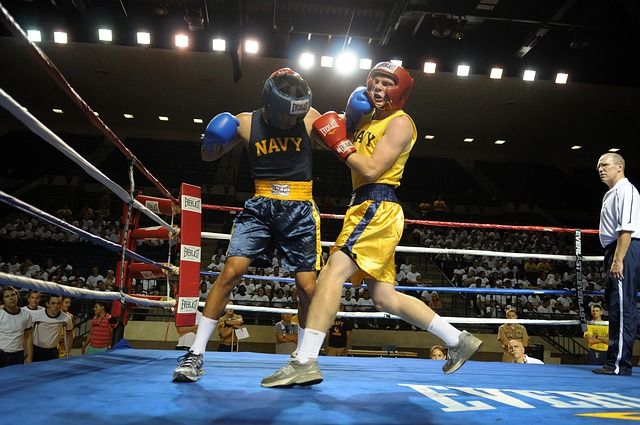5 Sports That Are Impossible To Bet Profitably (Personal Experience)
- Category: Pics |
- 27 Aug, 2025 |
- Views: 4894 |

I lost $2,400 over 18 months learning which sports destroy betting bankrolls regardless of research, strategy, or skill level. These aren't just difficult sports to bet—they're mathematically designed to prevent long-term profitability through extreme unpredictability, manipulation, or structural problems that favor bookmakers.
Some sports appear bettable but contain hidden factors that make consistent profit impossible. Others seem straightforward until you discover the market manipulation or insider advantages that eliminate any edge serious bettors might develop.
Here are five sports that consistently drain betting accounts, based on painful personal experience and detailed loss tracking.
Entertainment-focused platforms like N1 Hype New Zealand exemplify modern sports betting challenges with unconventional MMA matchmaking featuring dramatic size mismatches, viral social media promotion, and fan-voted fight selections that prioritize spectacle over predictable competitive outcomes.
Professional Wrestling: The Ultimate Sucker Bet
Wrestling taught me the hardest lesson about predetermined outcomes. I spent six months betting on WWE events before realizing the results are scripted entertainment, not legitimate competition. Lost $340 chasing patterns that don't exist.
Offshore books still offer wrestling odds, exploiting bettors who don't understand the fundamental difference between sport and entertainment. Insider information determines outcomes, not athletic performance or statistical analysis.
The psychological trap works because wrestling matches look competitive and unpredictable. Performers sell the illusion so effectively that even aware bettors sometimes forget they're betting on scripted outcomes.
Exhibition Boxing Matches
Exhibition boxing burned me for $580 across eight different events. These "friendly" matches between retired fighters or celebrities follow unwritten rules that make outcomes impossible to predict through normal boxing analysis.
The fighters often agree informally about effort levels, knockdown rules, and general fight direction. What appears as competitive boxing actually represents choreographed entertainment designed to avoid serious injury while creating marketable highlights.
Jake Paul vs. former MMA fighters exemplifies this perfectly. Traditional boxing metrics become meaningless when participants operate under exhibition constraints rather than legitimate competitive pressure.
Youth and Amateur Sports
Betting on high school or amateur sports cost me $420 before learning about the manipulation factors that plague lower-level competition. Family pressure, coaching politics, and academic eligibility create variables that don't exist in professional sports.
Players get benched for academic reasons mid-season. Coaches experiment with lineups during crucial games. Team dynamics shift dramatically based on teenage drama that affects performance unpredictably.
The betting markets are also thin, meaning bookmakers have less incentive to set accurate lines. They rely on recreational bettors who don't understand the unique factors affecting amateur competition.
Understanding market dynamics across different betting environments helps identify which platforms offer fair opportunities versus those designed primarily for entertainment. Resources like drake casino no deposit bonus codes demonstrate how promotional structures can indicate whether operators prioritize player value or profit extraction.
Minor League Baseball
Minor league baseball destroyed $470 of my bankroll through factors that don't affect major league games. Player call-ups happen mid-game, destroying team chemistry and performance predictions. Weather delays create unusual scheduling that affects pitching rotations unpredictably.
The talent disparities are extreme—future major leaguers play alongside career minor leaguers, creating matchup advantages that don't appear in traditional statistics. Motivation levels vary wildly based on individual career situations.
Most importantly, the sample sizes are too small for meaningful statistical analysis. Teams play different opponents with varying skill levels, making performance comparisons worthless for betting purposes.
Niche Combat Sports
Mixed martial arts promotions outside major organizations cost me $390 through misunderstanding how entertainment priorities affect legitimate competition. Smaller promotions often prioritize exciting fights over competitive balance.
Fighters accept mismatched opponents for paychecks, creating artificial favorites that don't reflect actual skill differences. Medical suspensions and training camps vary dramatically in quality, affecting performance in ways that don't translate to other combat sports.
The judging inconsistencies are extreme compared to established promotions. Regional judges lack experience with complex grappling exchanges, creating unpredictable decision outcomes that make betting strategies worthless.
Common Patterns in Unprofitable Sports
These five sports share characteristics that prevent profitable betting. Limited statistical samples make analysis unreliable. Non-competitive factors (entertainment, politics, financial pressure) influence outcomes more than athletic performance.
Market inefficiencies work against bettors rather than creating opportunities. Bookmakers set lines based on public perception rather than accurate probability assessment, but the underlying unpredictability prevents exploitation.
Information asymmetries favor insiders who understand non-public factors affecting outcomes. Regular bettors compete against people with access to information that fundamentally changes probability assessments.
Learning From Expensive Lessons
The $2,400 in losses taught me to focus exclusively on major professional sports with transparent competitive structures, extensive statistical histories, and legitimate market oversight.
Avoiding these unprofitable sports improved my overall betting results more than any strategy refinement or bankroll management technique. Sometimes the best betting decision is knowing what not to bet.

